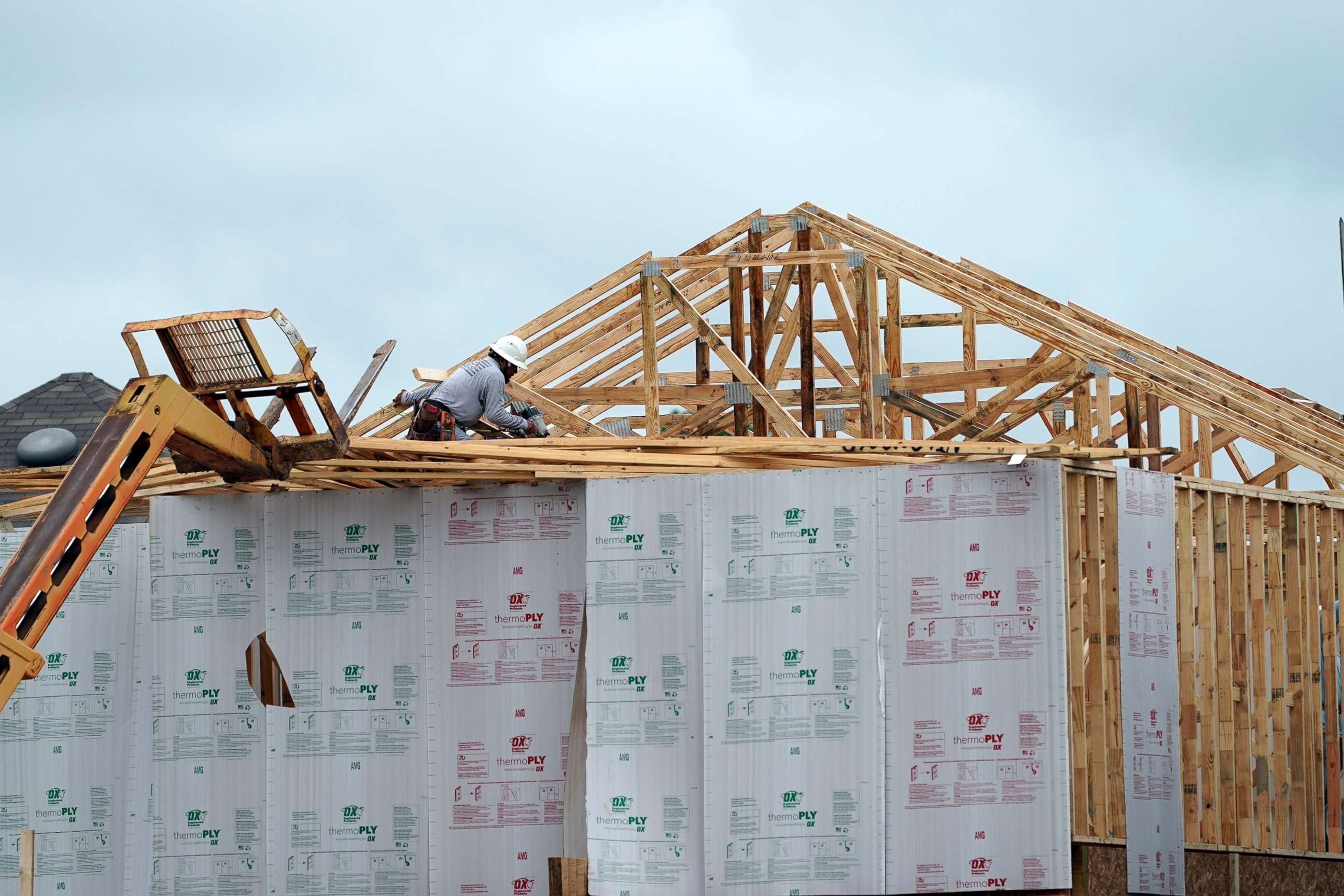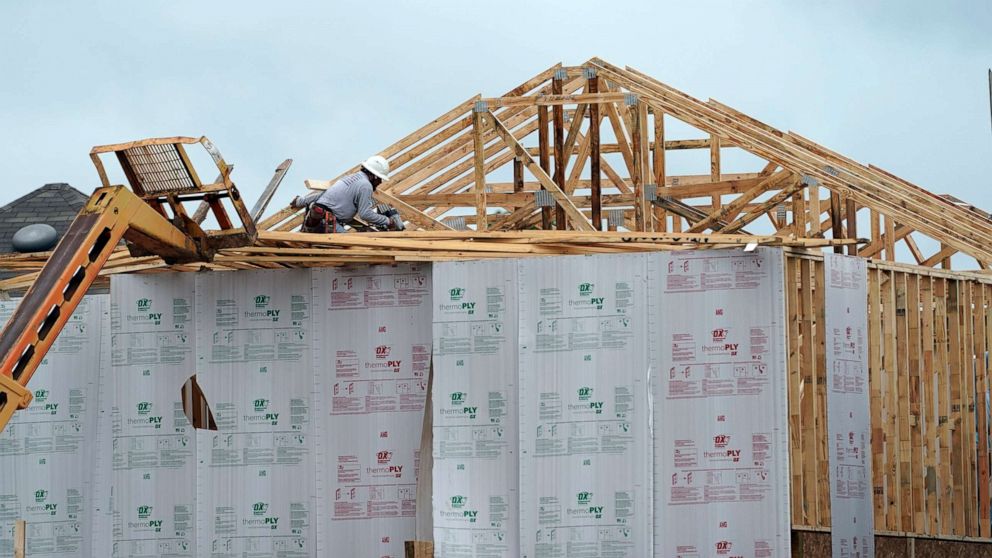Why some Latino essential workers remain overlooked amid racial reckoning protests
This report is part of "Turning Point," a groundbreaking month-long series by ABC News examining the racial reckoning sweeping the United States and exploring whether it can lead to lasting reconciliation.
In the wake of George Floyd's death at the hands of Minneapolis police in May, the movement for racial justice exploded across the country.
White and Black alike took up the cause, calling for police reform, racial justice in the workplace and health care, and took up the mantle "Black Lives Matter."
But other long-suffering communities of color received less attention and remain the targets of racial and ethnic discrimination, work in sub-standard conditions and have few paths for advancement, all while facing the coronavirus pandemic. Many Latinos, for instance, say they experience racism and inequality daily, but may not feel that they have the power or the privilege to speak up for themselves. That’s even more true for those who are undocumented, or who have family living in the U.S. illegally.
While some have joined Black Lives Matter protests, frustrated over issues like aggressive policing, the experience is uneven in part because of the wide-ranging geographic, ethnic and socioeconomic variation within the community.
The vast majority of Latinos living in the U.S. (around 60.6 million) are not undocumented, but 15.7% lived in poverty in 2019, a number that had been falling, but is still more than double their white counterparts, according to Census data.
Latinos also make up a large portion of the labor force in service sectors that were considered essential after the COVID-19 pandemic started (some 65%) -- like some construction, health care and food service workers -- leaving them at higher risk of being exposed to the disease without the protections typically afforded first responders and other traditional essential workers.
"Why are Latinos dying at a higher rate? Because we have no choice," said Frankie Miranda, the president of the Hispanic Federation, which supports Latino-led non-profits around the country. "We have to go to work, stock the shelves, deliver the food, be the sanitation workers, and of course we don't have the protective gear or any kind of information that can help us really navigate this. We know this for sure because our member agencies -- that were already underfunded and under-resourced -- were the ones that needed to step in and be the first responders for our communities."
'They just don't care about us'
Maribel García, the owner of Lexus Concrete, in Houston, said she understands the experience of undocumented workers -- her husband was once in that position, but was able to get his citizenship. Now, they own the company together.
"They're very hardworking, and it's sad because sometimes they're made to have the mentality that their work doesn't count or that they're about to get deported," she said. "They're obedient and they're worried. That's their fear, they sleep with that, they wake up with that."

In the construction industry, being undocumented sometimes means safety is not a priority. Jesse Rice, a member of Local 40 Union Ironworkers in New York City, said unions often have stricter safety measures, while for non-union companies (where undocumented Latinos often find work, because they don't have insurance and are paid in cash) "safety always takes a back seat."
In these situations, undocumented workers are the most at risk, because if they get sick, they don't always have the money to cover their medical bills and are often afraid to give their information out to hospitals and clinics.
Rolando Alvarez, of A&M Drywall Finish and Paint in Columbus, Ohio, told ABC News that he and most other Mexican workers he works with live in fear of losing their jobs, being arrested or getting kicked out of the country, so when working conditions are bad or they are being taken advantage of, they simply look the other way.
Alvarez's mother, who is undocumented, has been working at a cleaning company in Ohio for nearly seven years, where he said she is paid minimum wage, with no overtime. He said things got even worse for her this year, because when the virus hit, her supervisor and various employees tested positive, but the bosses "covered up the numbers to make sure workers come in."
"They just don't care about us, they just want us to get the job done," he said.
Alvarez himself was undocumented for 14 years, and before he owned his drywall company, he cleaned.
"I was washing floors one day and the supervisor was trying to take advantage of me, to give me less money, threatening me with deportation," he recalled. "And the supervisor was Mexican, like me. He knew everyone was undocumented, he had a lot of people working from his town in Mexico."
When asked why he believes the Mexican community has not jumped into action and demanded racial equality following the Black Lives Matter protests, Alvarez suggested: "We are too afraid. Even if you want to do a peaceful protest, you don't want to be arrested because you can get deported."
Lack of unity, some say
Alvarez's case points to another situation that many Latinos say is affecting the community: lack of unity.
"Our countries of origin, in Latin America, have very complex histories of slavery, white supremacy and colonialism, so there is already a very complex mix, that when people move from Latin America to the U.S., is also adding to the existing system of discrimination in this country," said Miranda, of the Hispanic Federation. "And in the end, members of our community are forced to compete for limited resources in housing, in health, in education. So it is a very interesting way in which the system of discrimination in this country pins us against each other."
The added pressure to "make it" in the country only heightens the problem, he said, as immigrants are sometimes unwilling to help each other out or speak up about the issues affecting them. Similarly, some Latinos say that when Hispanics who were once immigrants become citizens, they often reject their past, their culture and the people in it, leading to a massive separation within the community.
"Some of the Hispanics that are legalized here, they have a wealthy life, so they're not worried about [the immigrants]. A lot of people are ashamed of their parents because they're immigrants, because they live a different lifestyle here in the U.S.," García said. "I do believe the ones that do have papers don't wanna make a difference because they're already living their American dream and maybe they're ashamed or maybe they think it will affect their jobs."
Alvarez said that he believes there is a generational divide as well.
"Also, we are not as united as we think we are," he said. "We try to help each other, but when it comes time to do something about it, it's hard. Especially the older people, they just want to come here, do their thing, and not get in trouble. But younger people are starting to protest. I think we'll get there, but it will take time."
'Biggest hope'
Miranda, of the Hispanic Federation, blames the social and economic inequalities Latinos face in the U.S. on immigration laws, decades of racism against brown people and Latinos' own class systems. But he also blames the last four years of violence and prejudice toward the community on the Trump administration.
"At the start of the pandemic I was seeing the incredible impact of COVID-19 on our community. We knew that people were getting sicker, dying and not seeking attention because they were afraid. And they were afraid because there is a toxic narrative around our community coming from the White House," Miranda said.
As the 2020 election approaches, the federation -- in collaboration with "Hamilton" creator Lin-Manuel Miranda and his family -- is focusing more and more on bringing recognition to the Latino population in the U.S. and in getting them more involved in politics, although 28 million out of the more than 60 million will not be voting for several reasons, including not having citizenship. They've also raised $14 million to provide the community -- and others in need -- with cash assistance, rent assistance and PPE.
Miranda said that giving to Latino organizations has been low.
"This also affects the ability for Latino organizations to mobilize communities. Think about right now, with the election. Everybody is just now thinking last minute about the Latino vote," Miranda said. "The younger Latinos are my biggest hope, because they're the ones who are going to be driving the change."




